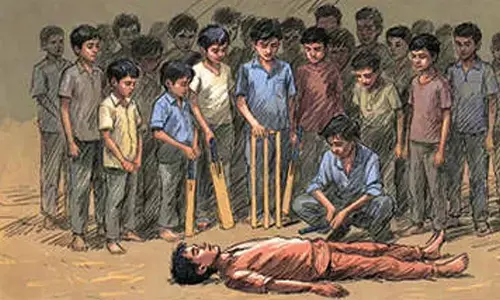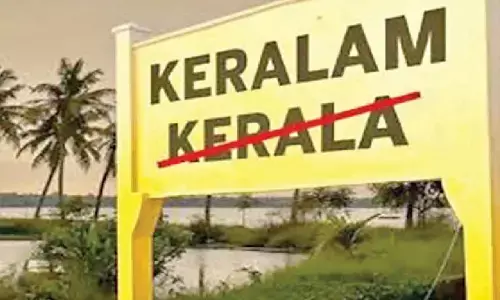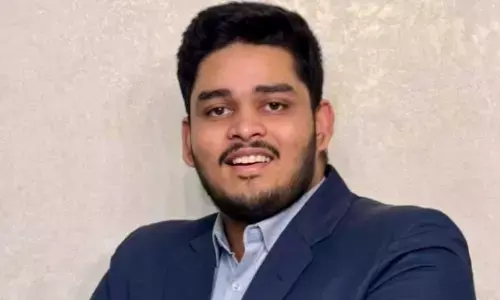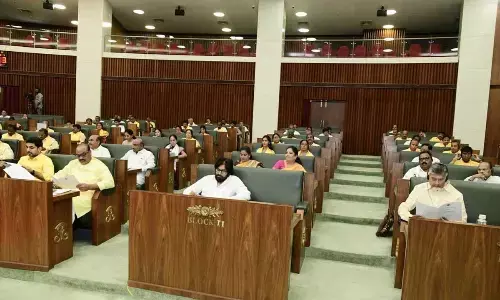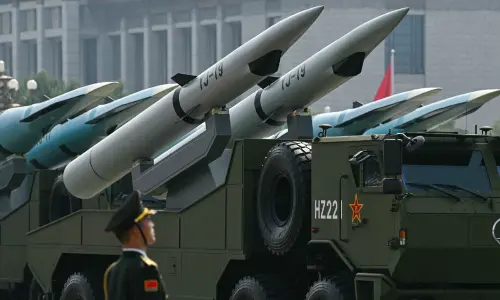Election special: Left in the lurch

Election special: Left in the lurch, The Communists will be fighting with their back to the wall -- perhaps for the first time in a Lok Sabha election.
The Communists will be fighting with their back to the wall -- perhaps for the first time in a Lok Sabha election.
With their long-standing West Bengal fortress demolished and few parties ready to go for alliances with them, the CPI-M and its smaller allies will be contesting in virtually hostile circumstances.

Communist Party of India's (CPI) D. Raja candidly admitted that the situation was "very tough".
"We acknowledge the situation is going to be very tough and challenging," Raja told IANS here. "But we are hopeful we will recover and emerge strong enough to form an alternate alliance."
Few independent analysts share Raja's optimism.
This will be the first Lok Sabha election for the Communist Party of India-Marxist since its 34-year rule of West Bengal ended in 2011 with the victory of Mamata Banerjee and the Trinamool Congress.
In another first, the CPI-M's traditional mantra of cobbling together a front of "secular and democratic forces" -- an euphemism for non-Congress, non-BJP parties -- has failed.
While the Marxists have managed to rally together friendly parties, no one is ready for a pre-election umbrella grouping called Third Front.
Worse, a high-pitched move by the CPI-M and the CPI to forge an electoral pact with Tamil Nadu Chief Minister J. Jayalalithaa has come unstuck, with the AIADMK chief refusing to meet their demands.
And unlike in the past, even the Samajwadi Party too is not eager for an electoral alliance.
Some of the Left's former "secular" friends are in a pathetic state in a few states such as Bihar, making it near impossible to form alliances that can pose threats to others.
Political observer Sumit Chakravarty said the Left's future would be grim unless the CPI-M and others took a reality check minus jaundiced eyes.
"If the Left can reinvent itself and unite with all its factions, it may make some difference," he added, underlining that 2014 marks the 50th year of the CPI-M's birth.
The Communist story of today was not always like this.
The CPI-M and its allies held on to their own despite the brute majority the Congress won in the Lok Sabha following the 1984 assassination of then prime minister Indira Gandhi.
In 1989, the Communists propped up prime minister V.P. Singh.
The CPI-M came closest to dominating the Indian political scene in 1996 when the centre-Left United Front coalition offered its leader Jyoti Basu, the then West Bengal chief minister, the job of the prime minister.
Basu declined under pressure from within the CPI-M, a decision he later rued as "a historic blunder". Unlike the CPI-M, the CPI joined the short-lived United Front governments.
With West Bengal, where the CPI-M took power in 1977, rallying for it in election after election, the Marxists enjoyed a clout that helped to rally "secular" and "democratic" forces.
The CPI-M and its allies also provided crucial legislative support to Manmohan Singh's government, an unlikely alliance which collapsed when the prime minister chose the Indo-US nuclear deal over the Left in 2008.
Now, with Mamata Banerjee firmly lording over West Bengal and the CPI-M a divided house in Kerala, the prospects for the Left -- which also includes the Forward Bloc and the Revolutionary Socialist Party -- remains bleak, political pundits and even party sources say.
The Left won 53 seats in the 1980 Lok Sabha election, the tally dipping to 33 in 1984 and then going up from 52 in 1989 to 57 in 1991.
It again slipped to 52 in 1996 and further to 48 and 47 in 1998 and 1999 respectively before climbing again to a record 59 in the 2004 battle which brought the Congress back to power nationally.
After the loss of West Bengal, the Left strength in the Lok Sabha plunged to 24 in 2009.
The emergence of the Aam Aadmi Party (AAP) with its street fighting tactics has also led to erosion in Communist support, party insiders say.
B.R.P. Bhaskar, a political pundit in Thiruvananthapuram, agreed that the road ahead for the Left was difficult. Added Chakravarty: "The Left should introspect why people are flocking to the AAP."


